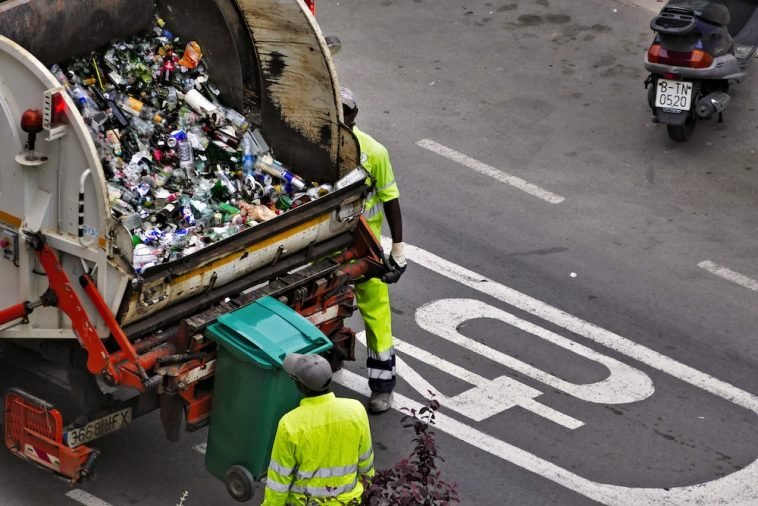Introduction.
Starting a waste management business in Nigeria is not just a great way to build a profitable venture—it’s also a chance to make a positive impact on the environment and the community.
With the growing population, urbanization, and increased consumption, waste management has become an essential service in many cities across Nigeria.
Unfortunately, waste disposal and management are still major challenges, with improper handling leading to health problems, environmental degradation, and a less-than-ideal living environment.
The good news is that there’s a huge market for waste management services in Nigeria, and you can tap into this opportunity to create a business that benefits both you and the community.
In this article, I’ll walk you through the steps to starting a waste management business in Nigeria, share some practical tips, and answer common questions to help you get started.
So, if you’re ready to dive into this rewarding industry, let’s get started!
Why Waste Management is a Big Deal in Nigeria
Waste management is an often-overlooked sector in Nigeria, but it plays a crucial role in maintaining public health and a clean environment.
With over 200 million people living in Nigeria and an ever-growing population, waste production has risen dramatically in recent years. Cities like Lagos, Abuja, and Port Harcourt generate thousands of tons of waste daily.
However, the infrastructure and systems to properly handle and dispose of this waste are limited or non-existent in many places.
Nigeria faces several waste management issues:
- Inadequate Waste Collection: Many areas, especially rural or underserved communities, struggle with timely waste collection. This often leads to waste piling up on the streets, which attracts pests and diseases.
- Poor Recycling Systems: Recycling is not as widespread as it should be. A lot of recyclable materials end up in landfills, further contributing to environmental pollution.
- Lack of Awareness: Many people in Nigeria aren’t fully aware of the importance of proper waste disposal, recycling, and the environmental impact of improper waste handling.
- Environmental Hazards: Improper waste disposal can lead to harmful environmental effects like soil contamination, water pollution, and air quality problems.
Despite these challenges, Nigeria is ripe for change. There’s a growing awareness about the importance of waste management, and the government and private sector are making strides to improve waste disposal systems.
As a business owner in this space, you can fill this gap and create solutions for the people around you.
How Do I Start a Waste Management Business?
Starting a waste management business can be both exciting and rewarding. But like any business, it requires careful planning and effort. Here are the essential steps to get you started:
1. Understand the Waste Management Industry
Before jumping in, it’s crucial to understand the ins and outs of the waste management industry. Waste management includes activities like:
- Waste Collection: Collecting and removing waste from homes, businesses, and other places.
- Waste Recycling: Sorting through waste to separate recyclables like plastics, paper, metals, and organic waste for reprocessing and reuse.
- Waste Disposal: Safely disposing of non-recyclable waste in landfills or through waste-to-energy processes.
- Waste Consulting: Offering guidance and advice to organizations, communities, or individuals on how to manage waste efficiently.
You need to decide which aspect of waste management your business will focus on. Will you offer just waste collection? Will you go into recycling? Or perhaps a combination of both?
2. Research the Local Market
The next step is to research the local market. Waste management needs can vary from one location to another.
What works in Lagos might not work in Kano or Enugu. Consider these factors when choosing your location:
- Population Size: Bigger cities will have more demand, but the competition can also be stiffer. Smaller towns might offer fewer competitors but also lower demand.
- Existing Services: Investigate existing waste management services in your area. What are they doing well? What are they missing? You could offer something new or better to stand out.
- Waste Composition: Understand the types of waste generated in your target area. Are there a lot of recyclables? Organic waste? Medical waste? Knowing this will help you decide how to position your services.
3. Create a Business Plan
Just like with any business, you need a solid business plan. Your business plan will outline the goals, services, target market, and financial projections for your waste management business. Here’s what to include:
- Business Model: Are you focusing on waste collection, recycling, or both? Will you target households, businesses, or both?
- Startup Costs: Starting a waste management business can require significant investment. You’ll need vehicles (like trucks or vans), containers for waste, equipment for sorting or recycling, and staff.
- Revenue Model: How will you make money? Will you charge per pickup, offer subscriptions, or enter into long-term contracts with businesses and organizations?
- Regulations: In Nigeria, there are regulations around waste management and environmental standards. Make sure you’re compliant with local laws and obtain the necessary permits before you start operating.
4. Secure Financing
Starting a waste management business may require substantial initial investment, especially for equipment and vehicles. You’ll need to figure out how to finance the business. Options include:
- Personal Savings: If you have savings set aside, this can be a good way to get started without the pressure of external loans.
- Bank Loans: If you need more capital, you can approach Nigerian banks for a business loan.
- Investors: You may also seek investors or partners who are willing to support your business in exchange for a share of the profits.
- Grants and Subsidies: Check with local government or international organizations for grants, especially if your business offers environmental benefits.
5. Get the Right Equipment
Waste management businesses typically require a variety of equipment, including:
- Trucks or Vans: For collecting and transporting waste.
- Bins or Containers: To sort and store waste.
- Recycling Machines (if you plan to recycle): These could be shredders, compactors, or crushers.
- Protective Gear: Waste management involves handling potentially hazardous materials, so make sure you and your staff have the proper safety equipment like gloves, masks, and boots.
6. Market Your Services
Marketing is key to attracting customers. Some marketing strategies to consider:
- Word of Mouth: Offer exceptional service to your first clients so they recommend you to others.
- Online Presence: Create a website and social media profiles to showcase your services, post tips on waste management, and connect with potential customers.
- Partnerships: Team up with local businesses, schools, or government organizations to offer waste management services in bulk.
FAQs
1. How much capital is required to start a waste management business?
The amount of capital depends on the size and scope of the business. For a small waste collection business, you might need at least ₦500,000 to ₦2,000,000 to cover vehicle costs, equipment, and initial operations.
2. Is it easy to get permits for waste management?
It’s not overly complicated, but it’s essential to follow the necessary regulations. You’ll need to get the required permits from local environmental agencies and possibly the government to ensure compliance.
3. Can I start a waste management business with no experience?
Yes, but having experience in waste management or at least some knowledge of how the industry works can be very helpful. You can also hire experienced staff or work with experts to guide you.
Conclusion
Starting a waste management business in Nigeria offers a unique opportunity to tap into a growing market and make a real difference in the community.
There’s money to be made in this sector, but it’s also a way to contribute to a cleaner, healthier environment.
As you embark on this journey, always remember that the key to success lies in understanding the market, providing excellent service, and being consistent in your efforts.
So, are you ready to take the first step toward building a business that makes both a profit and a positive impact on Nigeria’s waste management challenges?





GIPHY App Key not set. Please check settings